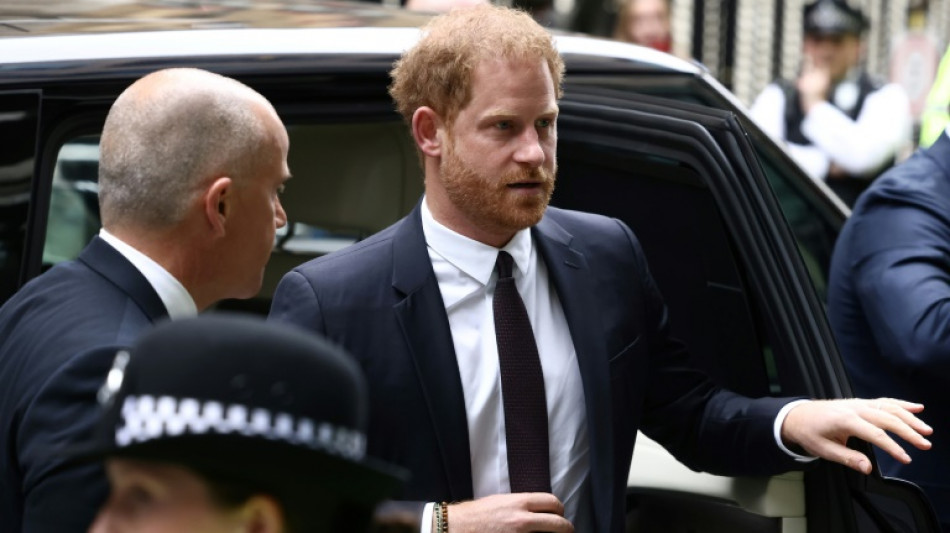

Prince Harry takes on the press - under oath
Prince Harry's appearance at the High Court in London on Tuesday was a world away from the gentle questioning of a friendly interviewer on prime-time television.
Instead, King Charles III's younger son was up against lawyer Andrew Green, King's Counsel, a courteous but relentless inquisitor representing British tabloid publishers Mirror Group Newspapers.
Harry and his American wife Meghan have made much of speaking their truth about their struggles inside the royal family since they left for the United States in early 2020.
But in the witness box of court 15 of the Rolls Building, a modern annexe to the Gothic halls of the Royal Courts of Justice, the goal was hard facts to support his claim of illegal practices.
"I swear by almighty God that the evidence I shall give shall be the truth, the whole truth and nothing but the truth," Harry swore on the Bible.
Harry's testimony is the first by a senior royal to be given in court since the 1890s. His lawyer, David Sherborne, was keen to ensure the court had the correct form of address.
He was first referred to as "Your Royal Highness" but Harry, dressed in a dark business suit, said he preferred "Prince Harry".
Then Green stepped up to cross-examine him on his written witness statement but not before apologising on behalf of MGN for one case of unlawful activity.
"MGN unreservedly apologises to you for that, it should never have happened and it will never happen again," he said.
The apology is the only one MGN has made. It disputes Harry's claim that its newspapers engaged in illegal information-gathering, including phone hacking, for stories about the prince.
- Details -
Green went over details, questioning Harry on the substance of his allegations that about 140 articles published by MGN titles between 1996 and 2010 contained information gleaned by unlawful methods.
Thirty-three articles have been selected for consideration at the trial.
Had Harry read them? How did he know the information was obtained illegally? he asked.
Harry wasn't sure as they dated back 20 years. Possibly, he said. Maybe, he added, as he explained how he was relentlessly targeted from a young age.
"I've experienced hostility from the press since I was born," he told the court.
It had made him paranoid and cost him close friends and relationships.
"Your circle starts to shrink," he said.
Green asked Harry to explain what he meant in his written testimony that some journalists had "blood on their hands".
"Some of the editors and journalists that are responsible for causing a lot of pain, upset and in some cases, speaking personally, death," he said, referring to his mother, Princess Diana.
She was killed in a 1997 car crash in Paris, while being pursued by paparazzi.
But Harry did not name any specific journalist, explaining that the phrase was aimed "more broadly towards the press".
Questioned about an article from 2002 that claimed he smoked cannabis, Harry took aim at his own family for cooperating with the newspaper.
Green suggested it was legitimately in the public interest, as Harry was the son of the future king and in the line of succession.
There was a difference "between public interest and what interests the public", the prince replied.
"Every element of it was distressing," he said.
曾-M.Zēng--THT-士蔑報




